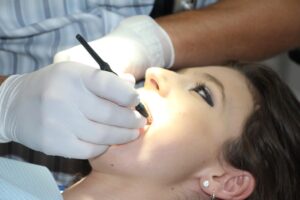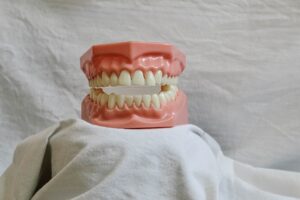Winter is a particularly favourable time to undergo certain maxillofacial surgery and dental treatments. Low temperatures and a slower pace of life make it easier to rest and promote a more comfortable recovery after surgery. In addition, as there are fewer outdoor activities that can interfere with the postoperative period, this season is an ideal time to correct functional and aesthetic problems with greater safety and peace of mind.
Orthognathic surgery, rhinoplasty and facelifts
One example is orthognathic surgery, which corrects jaw misalignments to improve facial aesthetics as well as chewing and breathing. It is especially recommended in winter because the low temperatures reduce inflammation, the risk of infection and exposure to the sun during recovery. All this favours a more comfortable postoperative period.
Similarly, in another of the most popular treatments at Clínica Birbe, rhinoplasty, low temperatures help to minimise inflammation and bruising. In this case, less exposure to the sun provides better protection for the skin in the area, which is particularly delicate after the operation.
Facelifts also benefit from the cooler season, as the treated skin requires protection from the sun’s rays to ensure optimal healing and prevent blemishes.
Winter is also a good time to address temporomandibular joint (TMJ) problems. Cold weather can increase muscle tension and jaw pain, so it is advisable not to delay any longer in finding a suitable solution to avoid the problem and discomfort for good.
Thus, although all these treatments can be carried out all year round, winter is more favourable for them. On the one hand, it favours better control of swelling and greater tolerance to bandages and compressions. On the other hand, less activity and movement contribute to safer and more satisfactory results.
Oral health care and prevention
In the dental field, winter requires special care, as teeth can become more sensitive due to the cold and sudden changes in temperature, for example when alternating hot and cold drinks.
Aesthetic treatments such as dental veneers or whitening find winter a particularly favourable time. The calmer routine of this time of year makes it easier to follow the specialist’s instructions rigorously during the post-operative and recovery process.
Invisible orthodontics also has advantages in the winter season. Patients wearing aligners can manage their eating routine more easily, as the cold weather limits outdoor activities that could interfere with the proper use of the appliances, and family gatherings allow for smooth planning of hygiene and aligner care.
Christmas with the best smile
When talking about this time of year, it is inevitable to mention Christmas, a period when we tend to eat more and increase our consumption of sugary foods. During these celebrations, oral care takes on special relevance, as excess sugar and acidic foods can lead to tooth decay and gum inflammation.
To prevent this, it is essential to maintain rigorous dental hygiene after each meal, use specific toothpastes for sensitive teeth if necessary, and avoid brushing hard just after eating acidic foods. In addition, alternating sweets with fruit or water helps to neutralise the effects of sugar. For children, it is advisable to supervise brushing, limit the consumption of sweets between meals and control the intake of sugary drinks during school holidays.
Winter offers a unique environment in which to take care of facial and oral health, and to carry out certain maxillofacial and dental treatments. We will help you and accompany you throughout the process. Call us on 34 932 124 737, send us a whatsApp to 34 626 852 363 or write to us at clinica@birbe.org.
Article written by the Birbe Editorial Committee



